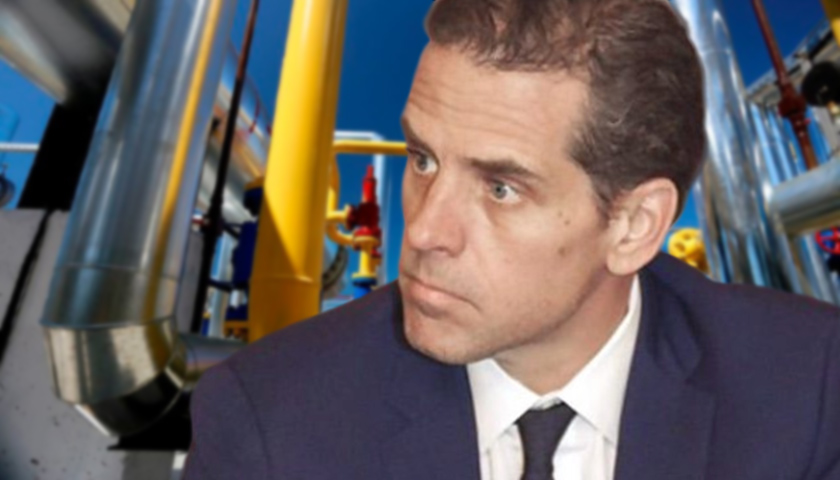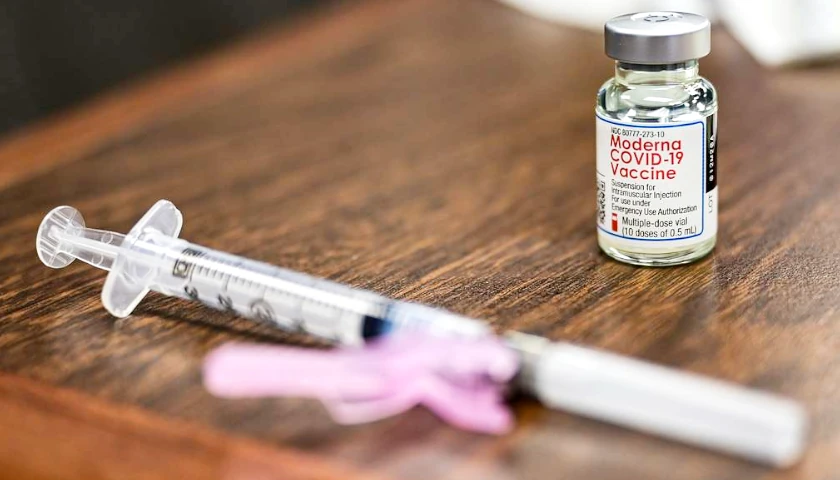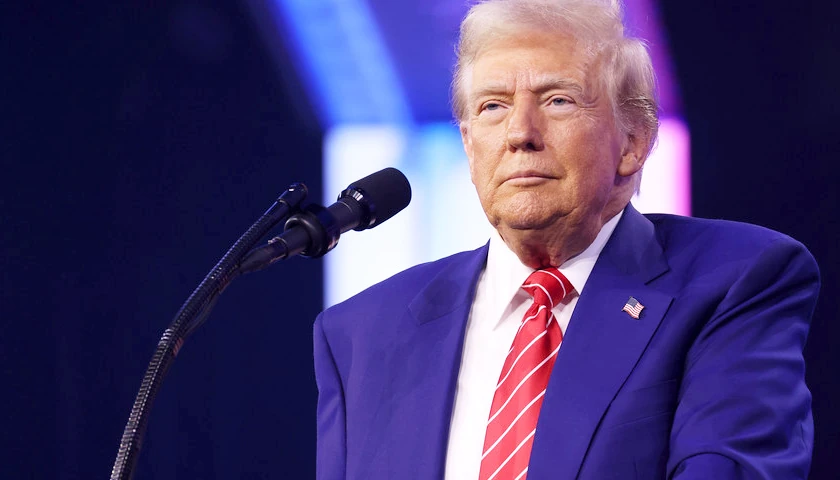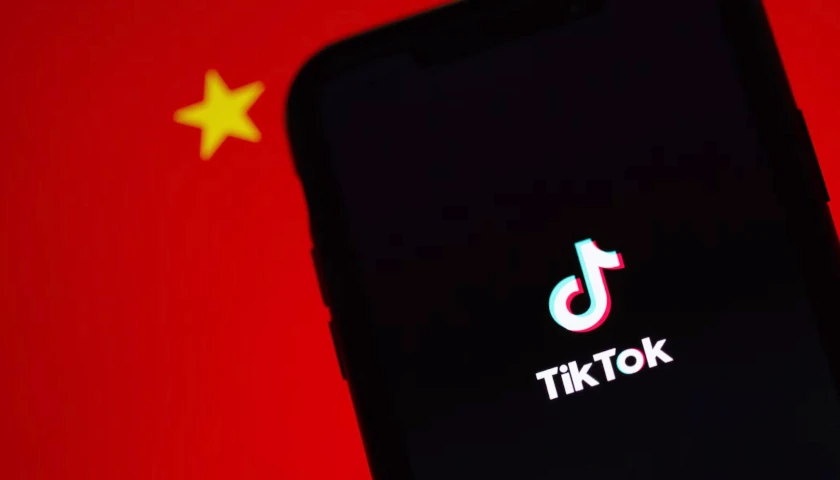by James D. Agresti
After big tech companies suppressed a New York Post article exposing written evidence that Joe Biden “spent some time together” with a top executive of a corrupt Ukrainian energy firm that was enriching his son, media titans are misleading the public about the central facts of this explosive affair.
Twitter, for a prime example, pinned a post to the top of its home page claiming that Biden “played no role in pressuring Ukraine officials into firing the prosecutor” at the core of this case.
That is flatly disproven by the words of Biden himself, who stated on video that he told Ukraine’s president and its prime minister that he would withhold $1 billion in U.S. aid from their nation unless they removed the prosecutor. “If the prosecutor is not fired,” warned Biden, “you’re not getting the money.” Biden then added, “Well, son of a bitch, he got fired.”
Twitter’s brazen falsehood only scratches the surface of media misinformation about this matter. In addition to spreading outright fictions, media outlets are failing to present key verified facts that are necessary to see the big picture. These facts—which are documented in the following bullet points—build upon each other and implicate Joe Biden in a web of corruption that involves bribery, extortion, and obstruction of justice:
- In April 2014, while Joe Biden was vice president, he traveled to Ukraine and promised its parliament that the U.S. would help the nation increase its fossil fuel production to make it less dependent on Russian energy. In that same month:
- the largest private natural gas producer in Ukraine appointed Biden’s son Hunter and his business partner to the company’s board and began making payments to their firm that amounted to more than $3.3 million.
- the owner of the energy company—a Ukrainian oligarch named Nikolai Zlochevskyi who the U.S. State Department considered corrupt and who had just fled to Russia—personally approved Hunter’s hiring.
- the oligarch’s London bank accounts were seized by British officials in a money laundering investigation.
- In February 2015, the U.S. State Department and the FBI learned that Hunter’s oligarch benefactor allegedly bribed Ukrainian prosecutors to shut down investigations of him. Thus, the government of Ukraine replaced the chief prosecutor with a new one that would be fired one year later at the insistence of Joe Biden.
- Both Bidens claimed that they never discussed Hunter’s business dealings with each other, but a corroborated trove of emails shows that a top executive of the energy company thanked Hunter in April 2015 for “inviting me to DC and giving an opportunity to meet your father and spent some time together.”
- In November 2015, the same top executive wrote an email to Hunter and his partner in which he:
- criticized a proposal they recently sent to him because it was “lacking concrete tangible results that we set out to achieve in the first place” and did not “offer any names of top US officials” or “Ukrainian officials” to help the oligarch improve “his situation in Ukraine.”
- stated that if they left these names out of their proposal “to be on the safe and cautious side, I can understand the rationale.”
- instructed them to “proceed immediately” with enlisting “high-ranking US officials” to visit Ukraine and persuade “the highest level of decision makers here in Ukraine” to “close down” all “cases/pursuits against” the oligarch.
- The next month in December 2015, Joe Biden acted in accord with the instructions of the energy company executive by visiting Ukraine and telling its president and its prime minister: “If the prosecutor is not fired, you’re not getting the money.”
- On February 2, 2016, the chief prosecutor secured a court order to seize property of the oligarch, including his land, houses, and a Rolls-Royce Phantom.
- Two weeks later on February 16, the president of Ukraine forced the chief prosecutor to resign. White House phone logs show that Joe Biden talked to the president of Ukraine at least three times in the week surrounding the firing. The phone log for the last of these calls states: “The Vice President also commended President Poroshenko’s decision to replace Prosecutor General Shokin, which paves the way for needed reform of the prosecutorial service.”
- Contrary to Biden’s claim that the prosecutor stood in the way of reform, when the president of Ukraine announced the firing, he complimented the prosecutor for implementing reforms that his predecessors had “been opposing for decades” and then listed the specific reforms. The president then said that he only asked the prosecutor to resign because he “failed to gain society’s trust.”
- Two months later in May 2016, Ukraine’s parliament approved the president’s appointee for a new chief prosecutor who was:
- the best man of the president who appointed him.
- sentenced to prison in 2012 for embezzlement and abuse of office.
- convicted in a separate 2012 case for illegal surveillance.
- pardoned by the previous president and released from jail in 2013.
- Six months later on November 1, 2016, this new chief prosecutor, who Biden later described as “solid,” dropped all criminal charges against the oligarch. The prosecutor then applauded these actions as a “success” because the oligarch paid $7.46 million in back taxes and penalties as part of the settlement. Far from being a prosecutorial victory, the oligarch praised these outcomes and stated that they would allow his corporation to increase production and “attract international companies to Ukraine.”
- Two weeks later on November 16, the energy company made its last documented payment to Hunter. In addition to the recent closure of all criminal cases against the oligarch, Donald Trump had just won an upset victory in the U.S. presidential election. This left Joe Biden incapable of using U.S. taxpayer funds to influence Ukrainian officials.
- In March 2019, the Ukrainian president who followed Biden’s order to remove the chief prosecutor lost his bid for reelection.
- The next month in April 2019, Hunter resigned from the board of the energy company.
- Five months later in August 2019, the prosecutor who Biden praised as “solid” resigned under pressure from the new president after failing to prosecute anyone of note during his three-year
- In June 2020, the oligarch tried to bribe other prosecutors who began to investigate him, and police seized the bribe money. The payoff was six million U.S. dollars, the largest bribery seizure in the history of Ukraine.
In the face of all of these incriminating facts, NPR’s Public Editor posted a Tweet saying that NPR is not reporting on “the NY Post’s Hunter Biden story” because “we don’t want to waste our time on stories that are not really stories, and we don’t want to waste listeners’ and readers’ time on stories that are just pure distractions.”
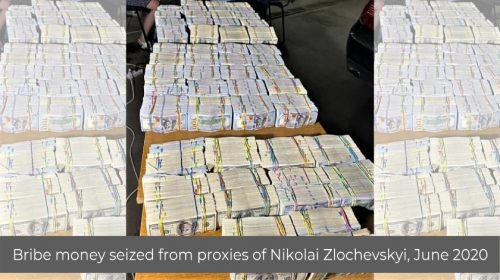
The Prosecutor Was Actively Investigating the Oligarch and Hunter
One of the more outlandish falsehoods about this affair comes from the Washington Post’s lead “Fact Checker,” Glenn Kessler. He claims that the chief prosecutor (Viktor Shokin) who was sacked at the behest of Biden “was not investigating” the oligarch’s company (Burisma) at the time.” As proof of this, he asserts:
In September 2015, then-U.S. Ambassador to Ukraine Geoffrey Pyatt publicly criticized Shokin’s office for thwarting a British money-laundering probe into Burisma’s owner, Mykola Zlochevsky.
In reality, however, the U.S. ambassador was not criticizing Shokin but his predecessor, Vitaliy Yarema. This is proven by the fact that the British money laundering probe cited by the ambassador ended on January 21, 2015, and Shokin was not appointed chief prosecutor until the next month in February 2015. The London Guardian, the Financial Times, and the New York Times all reported that the probe ended in January, raising the question of how Kessler could honestly botch this fact.
In a related article, Kessler scales up the rhetoric and claims that the ambassador “blasted Shokin for ‘openly and aggressively undermining reform’ and having ‘undermined prosecutors working on legitimate corruption cases’.” However, the ambassador stated that “corrupt actors within the Prosecutor General’s office” did this, not Shokin.
Furthermore, in the very same speech that Kessler misquoted twice, the ambassador began speaking about the present and said: “We want to work with Prosecutor General Shokin” and help him lead “the fight against corruption.” This further demonstrates that Shokin is not the person who the ambassador castigated.
Twitter, in turn, invoked Kessler’s bogus fact check to insist that the “prosecutor was not investigating Burisma at that time.”
Like Kessler, articles by CNN and Bloomberg take the ambassador’s words out of context to make it seem like he was lambasting Shokin instead of his predecessor.
In contrast to those false reports—court records, first-hand sworn testimony, and the words of a top executive of the oligarch’s energy company show that Shokin was, in fact, investigating the oligarch and also Hunter at the time Joe Biden forced the firing of the prosecutor.
Just two weeks before he was fired, the Prosecutor General’s Office, which was led by Shokin, obtained a court order to seize property of the oligarch, including his land, houses, and a Rolls-Royce Phantom.
In 2019, Shokin signed a sworn affidavit stating:
- “The truth is that I was forced out because I was leading a wide-ranging corruption probe into Burisma Holdings, a natural gas firm active in Ukraine and Joe Biden’s son, Hunter Biden, was a member of the Board of Directors.”
- The president of Ukraine “was emphatic that I should cease my investigations regarding Burisma. When I did not, he said that the US (via Biden) were refusing to release the USD $1 billion promised to Ukraine. He said that he had no choice, therefore, but to ask me to resign.”
Shokin also wrote to reporter John Solomon that his “specific plans” for the investigation “included interrogations and other crime-investigation procedures into all members of the executive board, including Hunter Biden.”
Three months before Shokin was fired, a top executive of the oligarch’s energy company sent an email to Hunter and his partner urging them to get “high-ranking US officials” to persuade “the highest level of decision makers here in Ukraine” to “close down” all “cases/pursuits against” the oligarch. In this email, he identified the “Prosecutor General” as one of his “key targets.”
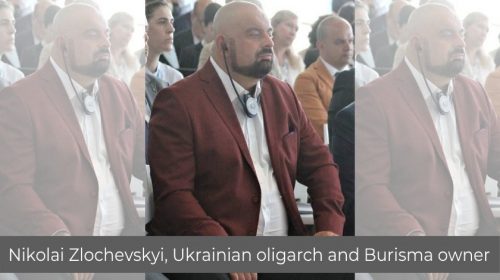
Authenticity of the Laptop’s Content
A common media refrain is that the content published by the NY Post from Hunter’s laptop is not authenticated or verified. Leslie Stahl of CBS’s 60 Minutes went as far as to say that it “can’t be verified.” Such claims are belied by the fact that key aspects of it have already been verified.
For example, the listed recipient of one of the most damming emails released thus far has confirmed that he received the email. Tony Bobulinski, a former business partner of Hunter’s, issued a public statement that he is “the recipient of the email” and that the “email is genuine.”
The email lays out how the “equity” of a business venture with “CEFC” (a Chinese energy company) will be “distributed.” It does this by using the initials of the people copied on the email and numbers that add up to 100 percent. The last one of these says “10 held by H for the big guy?” According to Bobulinski, “the big guy” is “in fact a reference to Joe Biden,” as “Hunter Biden called his dad ‘the Big Guy’ or ‘my Chairman’.”
Beyond such first-hand testimony, the NY Post points out that it has published an array of pictures and emails from the laptop that “contain an extraordinary level of detail,” “most of which have nothing to do with Ukraine or China.” These include, for example, a picture of Hunter in a bathtub and a picture of a Biden family meal, along with emails to friends and family all bearing dates and times. On their own and collectively, these confirmable details corroborate that these are Hunter’s communications.
Moreover, if any of these communications were fictitious, it would be easy to prove this by showing that other people copied on the emails and texts received something different. Yet, no one has even claimed this is the case, much less presented proof of it.
While ignoring all of the evidence that supports the authenticity of the laptop’s contents, Joe Biden, Adam Schiff (Chairman of the House Intelligence Committee), and a group of government intelligence officials led by James Clapper (Obama’s Director of National Intelligence) are claiming that the contents of the laptop could be or definitely are Russian “information.”
Yet, as Clapper and company admit, “we do not have evidence of Russian involvement—just that our experience makes us deeply suspicious that the Russian government played a significant role in this case.”
That same group of people who are now invoking Russia previously spread demonstrable falsehoods that Trump and his team colluded with Russia in the 2016 election. These rampant accusations were disproven by a 2-year, $32 million investigation by an independent counsel which “did not establish” or “identify evidence” that members of the “Trump Campaign” or “any U.S. persons” “conspired or coordinated with the Russian government in its election interference activities.”
Furthermore, the Inspector General of the U.S. Department of Justice (an Obama appointee) “identified at least 17 significant errors or omissions” in warrant applications that the Obama administration used to surveil people associated with the Trump campaign for their Russia collusion investigation. The Inspector General also reported that he “did not receive satisfactory explanations” for these misleading warrant applications.
Nevertheless, a range of broadcasts and publications by NBC, the Daily Beast, the New York Times, Business Insider, and Vox have given more airtime and credence to politically opportune speculation from partisans who previously spread misinformation about Russian collusion than to the verifiable facts of this matter.
Biden’s “Official Schedules”
Another common media canard is the uncritical parroting of this statement from the Biden campaign: “We have reviewed Joe Biden’s official schedules from the time and no meeting, as alleged by the New York Post, ever took place.” That talking point is effectively meaningless because Biden’s official schedules are not comprehensive, and after Politico pressed the campaign about this matter, it reported:
Biden’s campaign would not rule out the possibility that the former VP had some kind of informal interaction with Pozharskyi (the energy company exec), which wouldn’t appear on Biden’s official schedule. But they said any encounter would have been cursory.
Even that admission is deceptive because Biden’s official schedules are so incomplete that they are even missing White House meetings. A prime example is an Oval Office meeting on January 5, 2017 in which Biden, Obama, and other administration officials discussed prosecuting Trump’s incoming National Security Advisor (H/T Joel Pollak).
The Meeting Occurred
Yet another media falsehood is the claim that the email isn’t clear about whether Joe Biden actually met with the energy executive. The Associated Press, for instance, reported that “the wording” of the email “makes it unclear if he actually met Joe Biden.” That is refuted by carefully reading the email, which states:
Dear Hunter, thank you for inviting me to DC and giving an opportunity to meet your father and spent some time together. It’s realty an honor and pleasure. As we spoke yesterday evening, would be great to meet today for a quick coffee. What do you think? I could come to you office somewhere around noon or so, before or on my way to the airport.
Given room for the language barrier, even if the executive meant “spend some time together” when he wrote “spent some time together,” he still used the word “pleasure,” which is not the kind of thing one would say if he merely had an unfulfilled opportunity to meet the VP. Also, the fact that the executive was flying out on the same day begs the question of why he would be thanking Hunter for inviting him from Ukraine to DC for a meeting with the VP that never occurred.
– – –
James D. Agresti is the president of Just Facts, a think tank dedicated to publishing rigorously documented facts about public policy issues.
Photos “Burisma” by Bella Bellini CC BY-SA 4.0 and “Hunter Biden” by Burisma Group.

